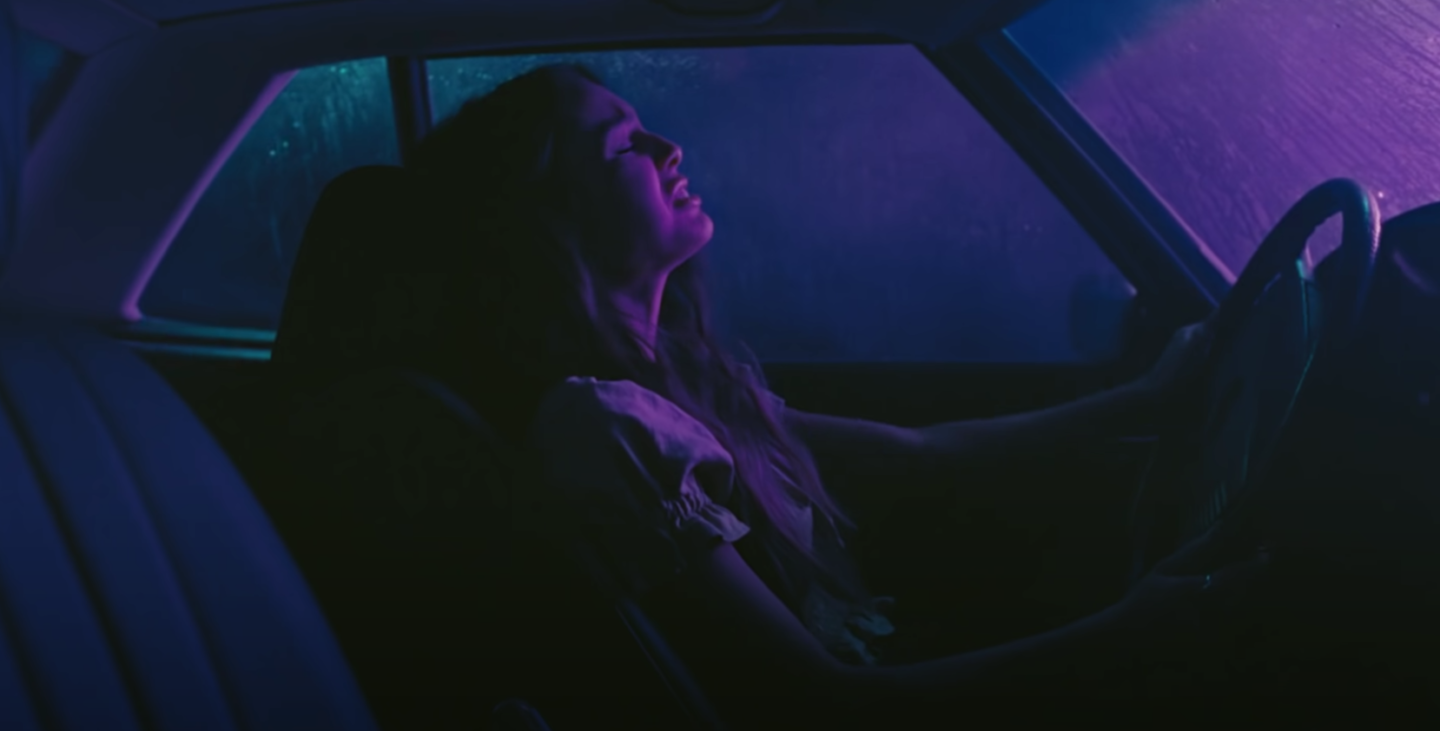Born in one of those “every town” sort of places in the Golden State–Temecula–it’s no surprise that Olivia Rodrigo should be an authority on how to write a love song as Californian as they come. This means, obviously, making frequent allusions to both driving and suburbia.
Ascending to the heights of the Billboard Hot 100 with her debut single, “drivers license,” Rodrigo’s trajectory has been somewhat akin to Ariana Grande’s–save for the fact that instead of using a Nickelodeon show to make the shift from tween TV to music, Rodrigo used a Disney Channel one instead. Same difference. Seeing her in the music video for the song, viewers get the sense that this form of acting isn’t that much of a stretch for her, thanks to all her time spent in front of the camera thus far. Commencing with the image of a car driving down a creepy and lonely road in the dead of night (spotlighted in such a way as to make you think of David Lynch’s Lost Highway–because what would an addition to the California-centric canon be without a nod–unwitting or not–to this auteur?), the camera then cuts to an interior shot of a forlorn-looking Rodrigo (bathed in purplish light that Nicolas Winding Refn could get on board with).
Staring woefully into the abyss of the long road ahead, she sings, “I got my driver’s license last week, just like we always talked about/’Cause you were so excited for me/To finally drive up to your house/But today I drove through the suburbs/Crying ’cause you weren’t around.” It’s at this point we see Rodrigo walking through a quintessential suburban neighborhood (so many of which populate California) in between scenes of her inside of a house working on a song (presumably this one). The Lorde overtones of calling out deceit while also melancholically admitting to still being attached (à la “Green Light”–a video, too, set in CA in which a car serves as a central character) is also instantly manifest in the songwriting approach.
Having declared herself as a die-hard Swiftie (like her self-styled nemesis, Sabrina Carpenter–who also, just as Rodrigo, cites Lorde as her second major influence), it’s only natural that she should incorporate the Swiftian trope from “You Belong With Me” of referencing another girl who has managed to steal the object of her affection’s heart. Except in Swift’s video, she’s the blonde “nerd” and the “other woman” (played by Swift as well) is the brunette. Rodrigo, with her dark hair, instead keeps the stereotype classic with the lyrics, “And you’re probably with that blonde girl/Who always made me doubt/She’s so much older than me/She’s everything I’m insecure about.”
Referencing her now ex Joshua Bassett (who co-stars with her in High School Musical: The Musical: The Series) and his new girlfriend, Carpenter, Rodrigo indulges in depression over the loss the California way: by driving around aimlessly through suburbia. After all, she got her driver’s license so as to be able to take such “freeing” joy rides–only she thought she would be taking them with the boyfriend who once promised “forever.” But it’s better she learns about the inevitable disappointment wrought by “men” now as opposed to later. And if they treat you this way when you’re at your hottest, then God or whoever only knows how cruelly they’re going to cast you aside later on.
Interspersed scenes showing Rodrigo during moments of the past with her ex-love are deliberate in never revealing his face–after all, he’s nothing more than a construct now. A botched ideal that gets hazier by the day. Rodrigo tries to console herself with more driving–after all, it worked for Maria in Play It As It Lays. Plus, when you first get your license, driving still feels like a somewhat exhilarating novelty, rather than a total pain in the arse as you while your hours away in signature California traffic. More parking lot than anything else. And of course there is a scene of Rodrigo standing in one as well, for CA is nothing if not filled with just as many parking lots as suburban culs-de-sac.
As the emotion in her voice and narrative intensifies, the California-ness gets especially bombastic in wielding driving vocabulary as a synecdoche for memory itself. How the places you once drove past with your lover in tow inevitably become pain points if and when you lose them. Thus, Rodrigo belts out, “Can’t drive past the places we used to go to/’Cause I still fuckin’ love you, babe/Sidewalks we crossed/I still hear your voice in the traffic, we’re laughing over all the noise.” Her fiendishness escalates in the video as well, finally letting herself “drop” as she lays back on the hood of the car as it’s in motion, allowing the breeze to whip through her hair with carefree abandon. She spells out more California emblems as they pertain to love gone wrong with, “Red lights, stop signs/I still see your face in the white cars, front yards.”
After the song’s emotional crescendo, Rodrigo takes it back to the cool, collected California girl persona by again calmly remarking, “’Cause you said forever, now I drive alone past your street.” The video’s director, Matthew Dillon Cohen, then concludes with a shot of Rodrigo standing alone in a suburban cul-de-sac at night (indeed, the majority of the video takes place during the dark hours to mirror Rodrigo’s own mood and perhaps to subvert the expectation that it’s always sunny in California).
Bereft–with no love to call her own–we can see that the greatest token of what it is to “be Californian”–getting your driver’s license–has now been tainted by this relationship experience. And so, Rodrigo’s debut single truly is a masterwork in the pantheon of CA-centric songs (one with the scarring potential to also be played during your driver’s license test).




















